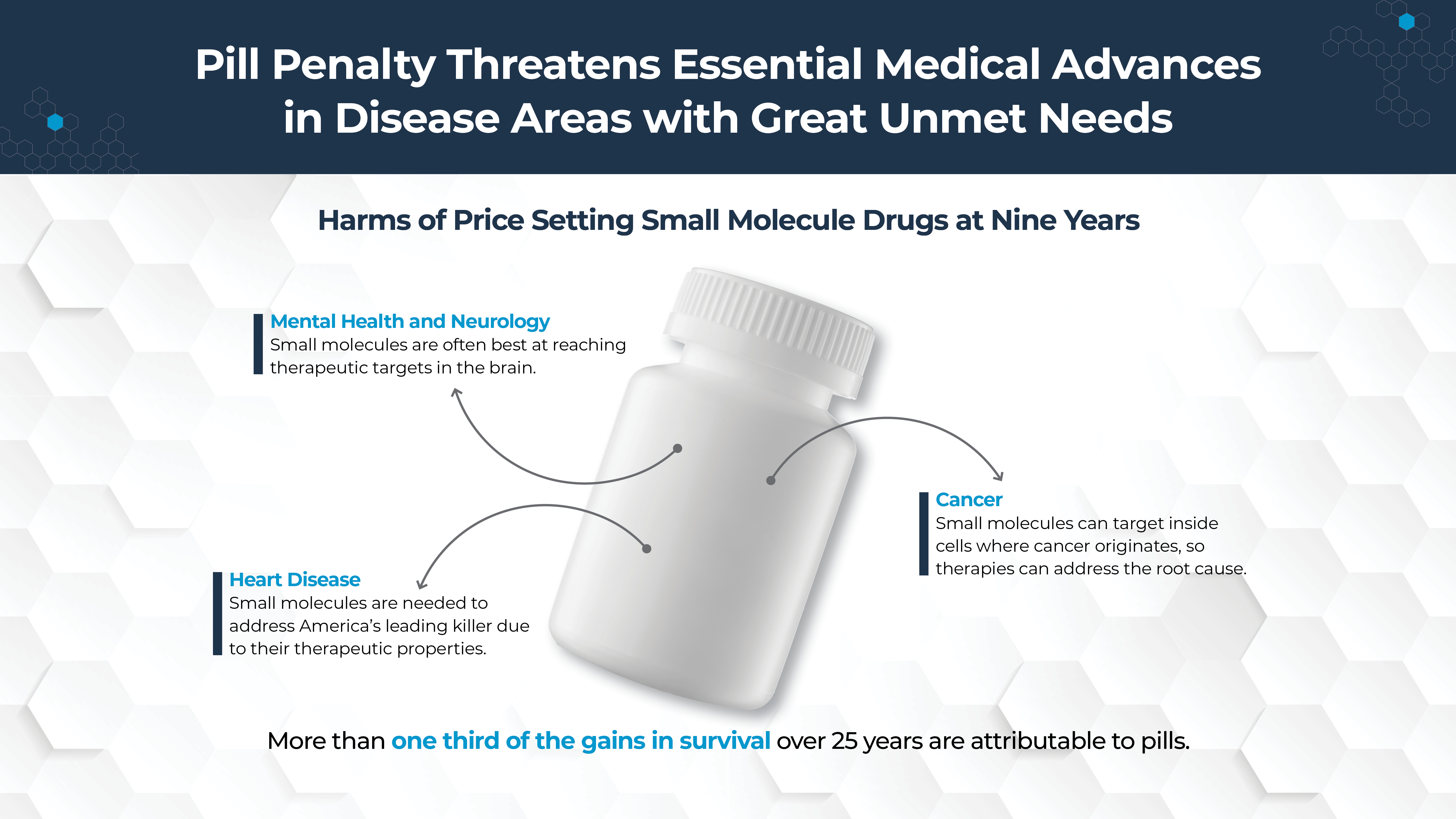Blog


Three reasons Congress should fix the IRA’s pill penalty

The United States leads the world in the research, development and manufacturing of innovative medicines. But the Inflation Reduction Act’s (IRA) “pill penalty” puts this leadership at risk by discouraging the development of treatments that often come in pill form like a tablet or capsule, also known as small molecule medicines. Under the IRA, these treatments can be price set years before other medicines, signaling to researchers that developing them is not worth the risk.
While the IRA was intended to lower costs for Americans, it misses the mark and by no means resembles true negotiations that happen in the competitive market. Rather, the government is unilaterally determining the prices of medicines in a process that ignores how pills are often the most convenient, effective and affordable treatments for patients. At the same time, the law did nothing to rein in insurers and PBMs which, in response to making less money on price-set medicines, are adjusting their coverage policies to force seniors to pay more. Congress must do away with this harmful policy that takes treatment options off the table for patients.
We are already seeing the impact: Early-stage funding for small molecule development has fallen nearly 70% since the IRA was introduced.
What’s at stake for patients if Congress doesn’t fix the “pill penalty?”
- Fewer lower cost treatment options available
Unlike more complex therapies, pills do not require frequent hospital visits or specialized administration. Further, once generic versions of these medications are available, they can be purchased at a fraction of the original price, with an average copay of just $6.16 and generic competition driving down prices by nearly 85%. - Fewer convenient, accessible medications
Pills offer unmatched convenience, helping patients better manage their condition and improve adherence. Pills can be taken in the comfort of a patient’s home, reducing the need for frequent visits to the doctor’s office or hospital. This is particularly important for patients in rural areas who may have limited access to health care facilities. Transportation challenges can be a major barrier to adherence as patients are more likely to skip their medicine if they face difficulties getting to appointments. - Fewer treatments that are essential in the fight against cancer, mental illnesses and other diseases
Pills have unique therapeutic properties that make them the most effective in treating a variety of diseases. For instance, pills are uniquely suited to treat a variety of mental health conditions due to their ability to cross from the blood-brain barrier and into the central nervous system. Additionally, due to their smaller size, these medicines can reach therapeutic targets within cells, making them a critical tool in the fight against cancer.
Patients deserve policies that prioritize the fight against disease not treatments. Policymakers shouldn’t be putting their thumb on the scale to decide which types of medicines will be unfairly targeted and which future innovative treatments will be stifled. Congress must fix the pill penalty and ensure patients have access to affordable, effective and innovative treatment options for years to come. Learn more at phrma.org/pricesetting.

 Brianna Allen
Brianna Allen